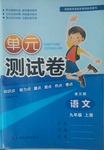题目内容
One Sunday , Cody decided to go sailing in his boat with his friend Dane , but Dane happened to be away. Dane's brother Brett wanted to go instead though he did not know anything about sailing. Cody agreed and they set out to sea.
Soon they found themselves in a thick fog. Cody was sure they would be hit by a big ship. Fortunately(幸运地)he saw a large buoy(浮标)through the fog and decided to tie the boat to it for safety. As he was getting onto the buoy,however,he dropped the wet rope. The boat moved away in the fog carrying Brett who did not know how to use the radio. He drifted(漂流)about and was not seen until twelve hours later.
Cody spent the night on the buoy. In the early morning he fell asleep and was having a bad dream when a shout woke him up. A ship,the Good Hope,came up and he climbed onto it and thanked the captain. The captain told him that Brett had been picked up by another ship and its captain had sent out a message.
( ) 1. Cody went sailing in his boat with his friend's brother Brett.
( ) 2. About sailing,Brett knew a little.
( ) 3. Soon they got into trouble because of the thick fog.
( ) 4. They drifted about and were not seen until twelve hours later.
( ) 5. Brett was saved by the ship,the Good Hope.
1. T 2. F 3. T 4. F 5. F

 阳光试卷单元测试卷系列答案
阳光试卷单元测试卷系列答案